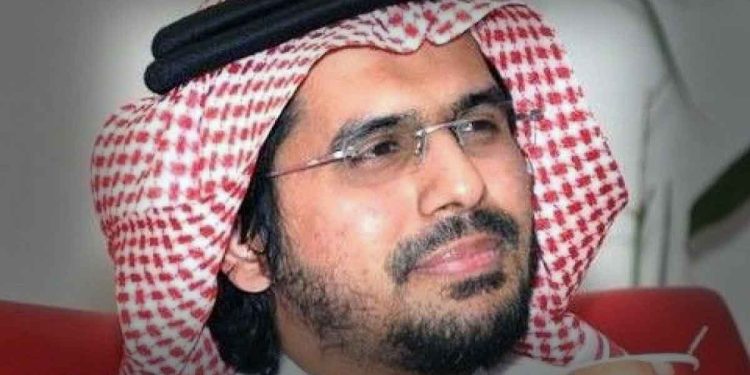Saudi authorities continue to arbitrary detain the writer Abdullah Al-Maliki since 2017 over his political views.
Abdullah al-Maliki was tried for fabricated and baseless charges including “inciting public opinion, defending members of the ACPRA, and possessing unauthorized books”. He was later sentenced to seven years and received a travel ban.
The leading academic and writer was arrested in the 2017 Saudi crackdown on dozens of religious figures, writers, journalists, academics and civic activists.
Al-Maliki is held under harsh detention conditions, denied from the right to fair trial and health care.
The September 2017 arrests targeted a number of high-profile figures, including moderate clerics Salman al-Odah and Awad al-Qarni, the academic at the Higher Judicial Institute Abdulaziz Al-Fawzan, the Imam of the Grand Mosque in Mecca Saleh Al-Talib, and Dr. Safar Al-Hawali.
The wave of arrests also targeted powerful business figures including Issam Al-Zamel, Abdullah Al-Maliki, Jamil Farsi, and Mustafa Al-Hassan, who was later released over health ground, in addition to journalists, feminist and human rights activists.
The Saudi authorities are imposing a total media blackout on the detention and health conditions of many detainees, amid reports of health deterioration of many of them due to the torture and ill-treatment they are constantly subjected to.
The Special Rapporteur on the promotion and protection of human rights and fundamental freedoms in the context of combating terrorism recently emphasised that Saudi Arabia is among the countries that continue to violate human rights and practice secret detention under the pretext of combating terrorism.
The Special Rapporteur, Fionnwala Ni Olin, published a report within the work of the 49th session of the Human Rights Council on global practices related to secret detention, to follow up on the recommendations of a study that was presented in 2010 on combating terrorism and human rights.





























